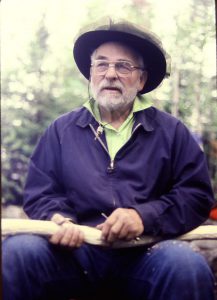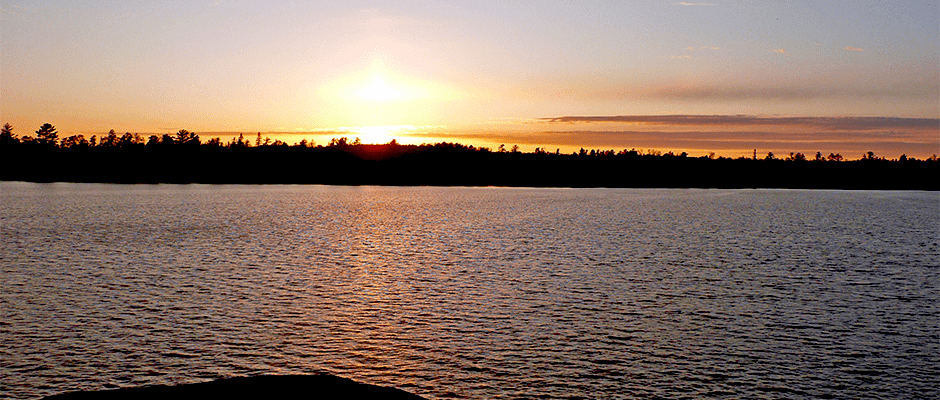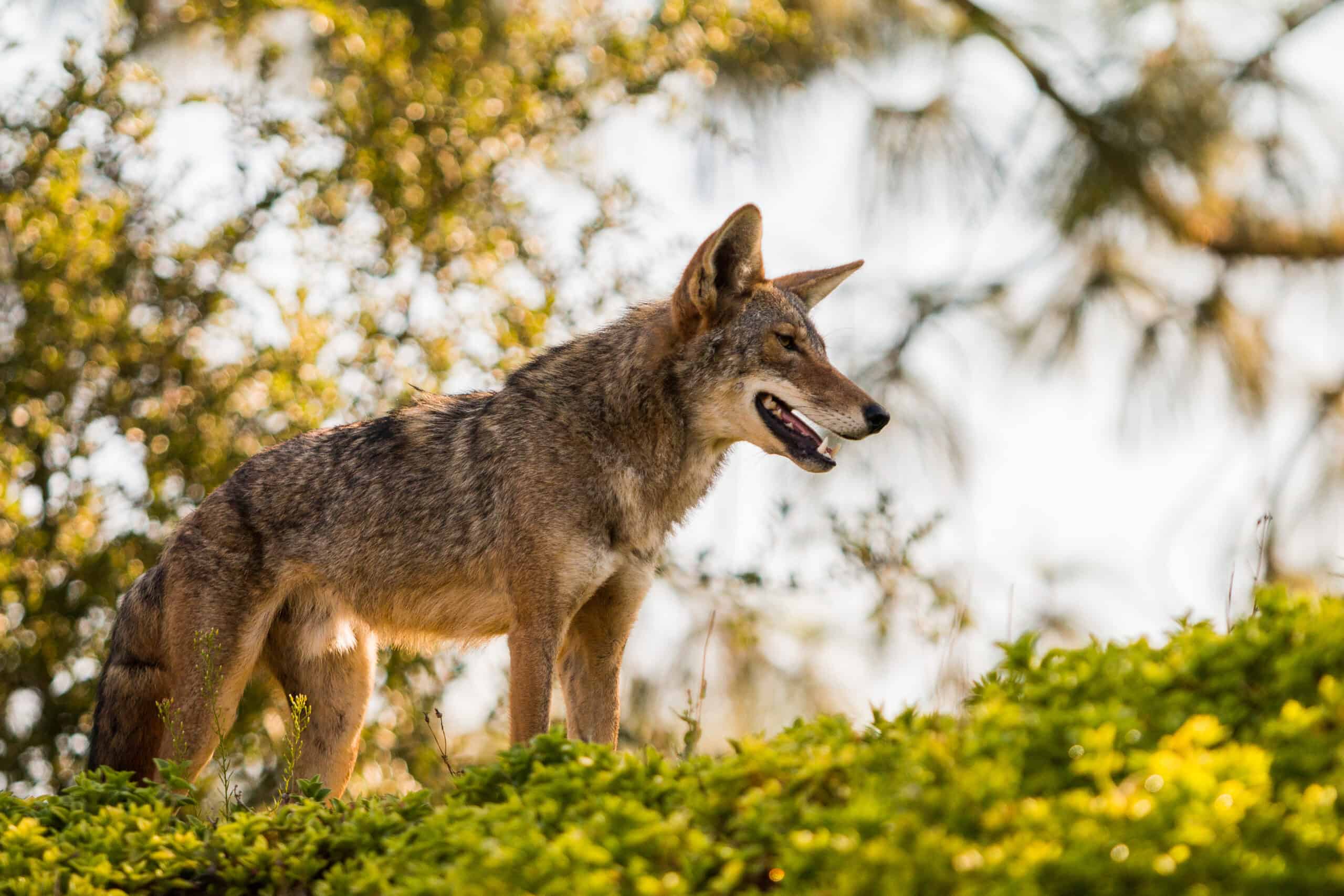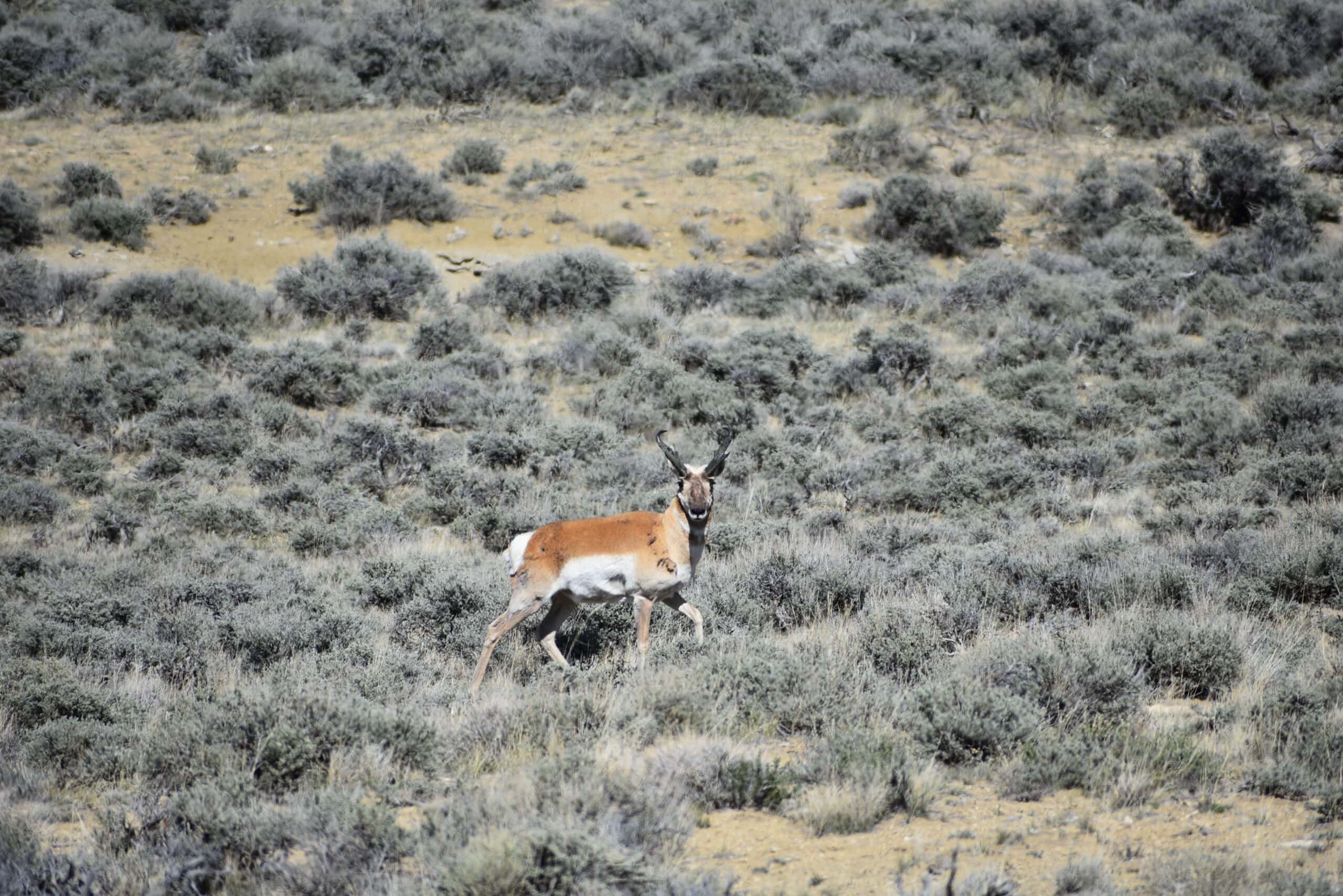Share this article
At 102, Wiegers still inspire generations of wildlifers
For many summers in his life, Howard Wiegers led around 20 students as they canoed their way into the Boundary Waters of Ontario to spend some three weeks learning wilderness living. Wiegers watched with an eagle eye as his students paddled and learned, eating fish they caught along the way.
It was eye-opening for the students, who got to spend time out in the open air, away from their normal classroom atmosphere at the University of Nebraska-Lincoln. It was inspiring for their professor, too.
“I enjoyed it and I enjoyed the people,” said Wiegers. “I literally caught hell from the faculty and the administration for spending so much time with the students. I found out so many of them were so talented, and they didn’t know it.”

Wiegers whittles on a diamond willow walking stick on the Quetico canoe trip in 1981. Image courtesy of Tom Christiansen.
Wiegers had pioneered the school’s fisheries and wildlife program, and even today at his retirement home in Lincoln, Nebraska, he receives visits and phone calls from wildlifers he’s influenced. He will celebrate his 103rd birthday July 20, making him the oldest living member of The Wildlife Society on record. (TWS doesn’t maintain complete records of members’ ages, though.)
Wieger’s wilderness outings were unique in their day, his students say, and for many, they were transformational.
“Those trips were probably one of the best learning experiences for students,” said Carl Wolfe, who was a biologist at the Nebraska Game and Parks Commission and met Wiegers in 1960 and worked with him in the TWS Nebraska Chapter. During these trips, students would find out if they had a passion for natural resources and wildlife, Wolfe said, and students still come to Wolfe fondly recalling times during these trips where they were chased by moose or stranded on a wind-bombed island.
Kelly Barrett, a district wildlife biologist in Minnesota’s Chippewa National Forest, said she fell in love with the wilderness through these trips. She met Wiegers while taking his Introduction to Wildlife Management course as an undergraduate and became one of his advisees. “After those trips, I spent a lifetime getting up into the Boundary Waters here in the summer and fall,” she said. “It really whetted my appetite, and now I take different family members there.”
Few women were in the wildlife profession at the time, Barrett said, but Wiegers encouraged her to write and share her writings, and she now writes a newspaper column. He also encouraged her to become involved in wildlife volunteer work in order to get a job in the profession.
Tom Christiansen, now the sage-grouse program coordinator with the Wyoming Game and Fish Department, recalls spending his student lunch hours in Wiegers’ office, chatting with him. Christiansen attended Wiegers Introduction to Wildlife Management course and later became his teaching assistant. Wiegers, he said, taught him the importance of the human component of wildlife. “It just became much more than the typical student-professional relationship,” Christiansen said. “But that wasn’t uncommon with Howard.”
Wiegers started off as a professor of poultry science at the University of Nebraska-Lincoln in 1948 where he worked on artificially inseminating hens. After becoming a wildlife management professor, he soon gained around 200 advisees in the agricultural college, which had about 1,400 students. “A seventh of the students were mine,” Wiegers said.
“If there was any person loved by students, it was Howard,” Wolfe said. “He has a very kind, gentle attitude. Kids came to college like so many do that don’t know what they want to do. He simply sat down with them and counseled them.”
Wiegers became actively involved in TWS. He joined the Society in 1944 and became the first president of the Nebraska Chapter, which has presented the Wiegers Outstanding Wildlife Award in his name since 1966. After he retired in 1985, he continued to influence other wildlifers and encouraged them to maintain their passion for wildlife as they reached retirement age.
At 102 years old, Wiegers said, he still isn’t done. “I’m not going anywhere,” he said.
Header Image: Wiegers took students canoeing in the Boundary Waters of Ontario. These trips connected students with nature and learn about wilderness living. ©Steven Conry








